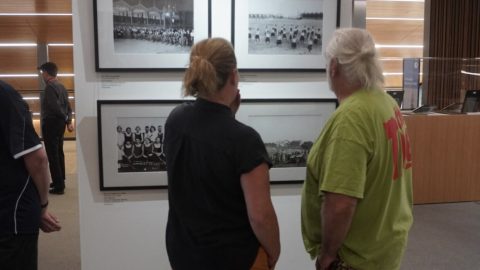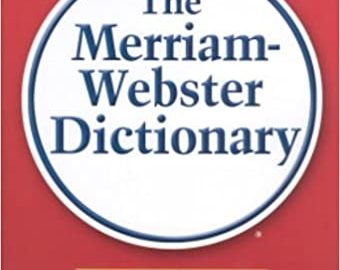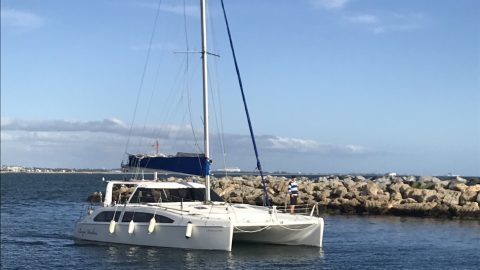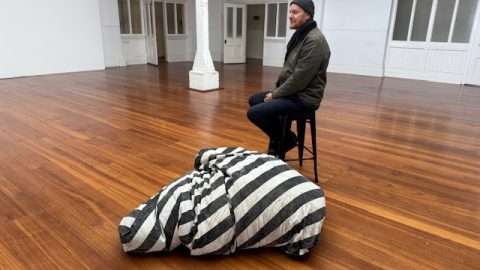So, Fremantle has a new Mayor – Hannah Fitzhardinge.
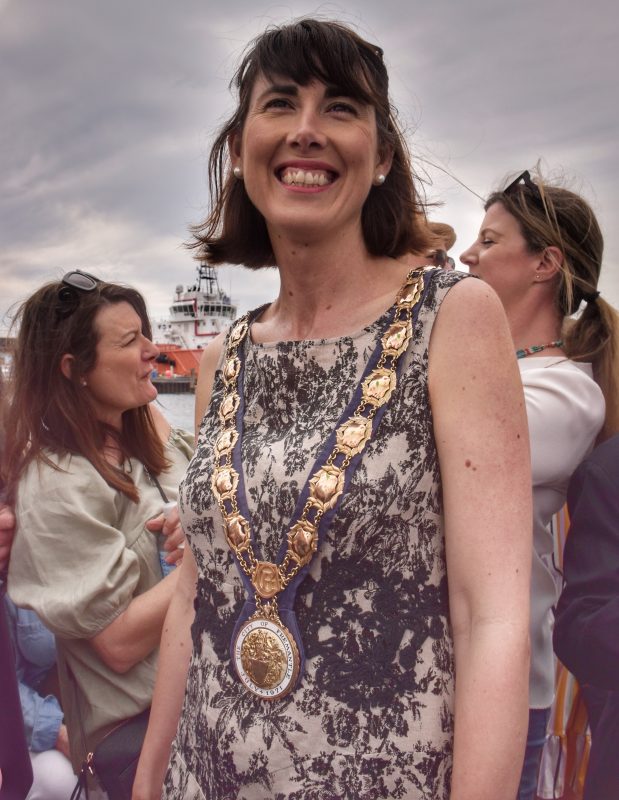
Credit Deanna Shanahan & @flotsamandjetsam6162
And in many ways, a new Council too.
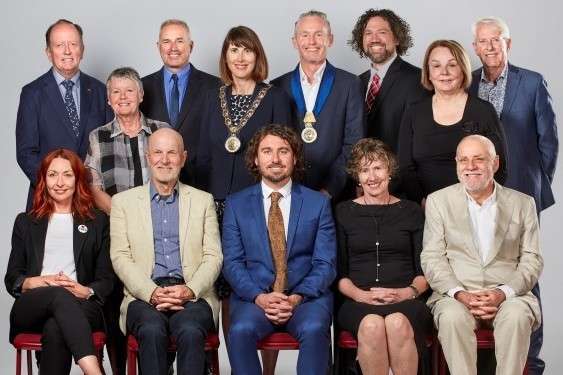
Every new Mayor arrives, as Charles Dickens might have said, with great expectations. Their own expectations, of course, but also ours, the electors, ratepayers and residents of Freo, especially those who supported the new Mayor’s campaign, policy plans and ideas.
Sometimes we are apt to think of the Mayor as an elected official endowed with supreme executive powers that are slightly magical in nature; as if she has the authority of a medieval Emperor.
Some of that thinking might come from the fact we electors, ratepayers and residents directly elect our Mayor, presidential-style. We don’t leave this choice to the elected members of the Council as happens in some other municipalities, for example Bayswater. But the reality is that the Mayor of Fremantle has exactly the same voting power as other councillors, when it comes to voting on proposals coming before the Council.
On top of that, the City of Freo, like all local governments, can only do those things permitted by the Local Government Act 1995 (the LGA) or required under other State legislation, for example, in relation to city planning and environmental health.
Nor does the Mayor have the right to veto what the Council has decided, as for example the President of the United States has over bills passed by its Congress.
As has been said of Prime Ministers and Premiers, her role is to be ‘first among equals’. This is reflected in the LGA, which recognises that the Mayor has a special role, but not an overriding decision-making one.
Section 2.8 of the LGA describes the role of mayors in these terms:
(1) The mayor … —
(a) presides at meetings in accordance with this Act; and
(b) provides leadership and guidance to the community in the district; and
(c) carries out civic and ceremonial duties on behalf of the local government; and
(d) speaks on behalf of the local government; and
(e) performs such other functions as are given to the mayor … by this Act or any other written law; and
(f) liaises with the CEO on the local government’s affairs and the performance of its functions.
Section 2.10 applies to a councillor who is also the mayor … and extends to a mayor … who is not a councillor, so we should also note what section 2.10 says. It provides that a councillor —
(a) represents the interests of electors, ratepayers and residents of the district; and
(b) provides leadership and guidance to the community in the district; and
(c) facilitates communication between the community and the council; and
(d) participates in the local government’s decision-making processes at council and committee meetings; and
(e) performs such other functions as are given to a councillor by this Act or any other written law.
In other words, there is a degree of similarity in the roles of Mayor and councillor, and all 13 members of the Council must provide ‘leadership and guidance’ to the community.
But the Mayor does have the special functions described in section 2.8 (a), (c-f).
While many of these special Mayoral functions may be described as ceremonial or formal, the role of speaking on behalf of the City is more than formal. However, one cannot imagine the Mayor speaking on an issue on behalf of the City without having a very good sense of where the majority of the Council stands.
The other special role of the Mayor that is more than formal, is that of liaising with the CEO of the City about civic affairs and the performance of Council functions. This role is one of the highest importance as it can relate to matters of financing, implementation of Council functions, and the like.
Crucially it is the way the Mayor can keep a finger on the pulse of the actual operations of the City in order to brief members of Council, formally and informally, about what’s happening. It is also the mechanism for ensuring a good working relationship between the Council and the City’s administration.
The CEO’s role is of course central to Council’s efficiency. Generally speaking, the CEO is responsible for the implementation of Council decisions; the operations of the City (including employing staff); and is instrumental in setting the workplace culture of all Council employees.
Curiously, though, the CEO is engaged by the Council itself. An odd sort of arrangement. But it makes sense when you appreciate that the first responsibility of the CEO is to implement Council’s decisions.
These days, codes of conduct seem to control just about all persons’ work lives, and the City of Freo is no different. The CEO is subject to a code, as are the councillors individually.
Indeed all members of Council may become the subject of disciplinary proceedings before the Local Government Standards Panel and by the State Administrative Tribunal if they breach the code.
The range of Mayoral roles that a Freo Mayor, and other mayors, undertake in the modern world has led to the office of mayor being full-time and paid appropriate ‘allowances’ under the LGA, as determined by the State Salaries and Allowances Tribunal. For the Freo Mayor, these allowances can add up to more than $130,000 per annum.
Of course, while busy, the City of Fremantle is not tasked to do everything in its district as it is a third tier of government after the Commonwealth and the State governments. Interestingly, unlike these latter two levels, local government is not recognised in the Australian Constitution or in the WA State Constitution.
Local governments are the creation of State Parliament, under the LGA. And under the LGA they can be suspended (in certain circumstances) and the LGA commissioners sent in to run the municipality.
By definition local governments are concerned with local things, that are sometimes referred to, a little dismissively, as the ‘3 Rs’ – Roads, Rates and Rubbish.
Of course, if a Mayor and councillors lose sight of these functions they do so at their peril. But over and above these essential functions, the role of local government has expanded greatly in recent decades, which a quick look on the City of Fremantle’s website demonstrates.
The Council website has a long list of matters under tabs dealing with Residents, Community, Build + Develop, One Planet, Arts + Culture, and Business.
In some cases, the Council is a regulator, as in Build + Develop; and in many Community areas the Council is a service provider.
Performing these functions costs real money. A big question for the Mayor, as the key leader, and the councillors and CEO is how the City’s revenue can be maximised, without losing its ability to provide the services that the residents have come to expect. Providing CAT bus services is a good example. If a new costly service of one sort or another is to be undertaken by the City, often it will have to be at the expense of an existing service because often the City cannot afford to cover all desirable services.
For our new Mayor there are also going to be many significant, strategic issues requiring her attention. One is planning and development in Freo.
A local government’s town planning scheme, not so long ago, was pretty much the last word on what sort of development – big or small – could be carried out. Whether it be a commercial centre, a new hotel, an amusement arcade, the demolition of a heritage building, a sign outside a business, or art on a street wall. But we now live in a time where State Governments, of different political stripes, have brought about an enormous centralisation of planning and development controls in State Government entities at the expense of local decision making. It’s happened almost in the blink of an eye.
For example, many important development proposals are resolved by processes that only marginally involve the City Council and, most recently, the State Government initiated Covid planning reforms have effectively removed local governments, including the City of Freo, from major development approval processes in favour of the WA Planning Commission and its State Development Assessment Unit. The risk here is that this apparently ‘temporary’ Covid planning system may become permanent, and the new Mayor will no doubt be alert to creeping State centralisation of planning powers.
You come to realise the significance of these planning administration changes when something like a major urban redevelopment of North Fremantle on the beachside of the rail line towards Leighton arises for discussion, as it now has with the expected transfer of the commercial operations of the Port south to Kwinana in the decade or more ahead. No doubt this will become a major issue for the Mayor and the Council.
Another major overall focus for the new Mayor, and Council, no doubt will be on what activities will sustain Fremantle’s local economy over a 30-50 year time-frame. Fremantle is not alone in this regard, as it is an issue facing all metropolitan municipalities.
In Freo’s case the question most often being asked is: What are Fremantle’s competitive advantages?
What do we intrinsically have, or already do well, that may help us to imagine what the key components of Freo’s future economic activity will be.
Can we become a hub for creative industries? Will the fast-moving renewable energy sector happening south of Freo encourage businesses to relocate their headquarters here, or encourage allied businesses to set themselves up here? Should we incentivise such commercial opportunities?
And another big question that will affect all Freo residents and business people alike, is how to maximise the opportunities presented to the City by the new Walyalup Koort/Kings Square redevelopment. It really has offered Freo a new heart. How do we make the most of it? One feels sure the new Mayor will show leadership in relation to such a physically important part of Fremantle.
2020, with Covid, challenged the Council and the Mayor in so many ways, not the least being a revenue reduction.
In 2021, issues such as climate change and the pandemic will continue to present challenges, not the least being trying to understand the extent to which our world has changed, the extent to which city centre’s like Freo’s may have changed. Are there now likely to be as many people working in the centre of Freo as projected when the Kings Square redevelopment with Sirona was settled upon?
Addressing these and the other major strategic questions mentioned, among others, will largely define our Mayor’s role and our Council’s role for some time to come.
One thing is for sure, that in doing so the Mayor and the Councillors will need to focus on working collaboratively and ensure that those who don’t always ‘get Freo’ come to understand us better!
Strategic leadership and facilitation will be essential roles for the Mayor, and we wish her all strength in her new role.
PLEASE HELP US TO GROW FREMANTLE SHIPPING NEWS
FSN is a reader-supported, volunteer-assisted online magazine all about Fremantle. Thanks for helping to keep FSN keeping on!
* This article was written by Michael Barker, Editor, Fremantle Shipping News

